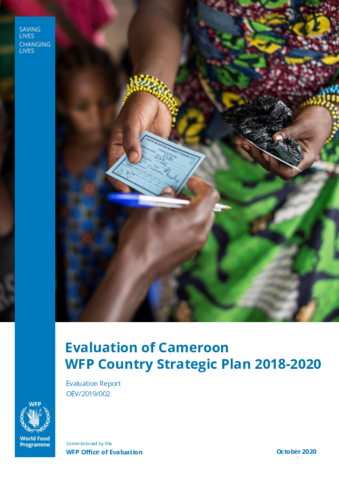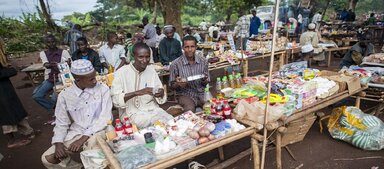
The evaluation was commissioned by the independent Office of Evaluation to provide evaluative evidence for accountability and learning to inform the design of the next Country Strategic Plan (CSP) in Cameroon.
Conducted between August and September 2019, the evaluation assessed WFP’s strategic positioning and role and the extent to which WFP has made the strategic shift expected by the CSP; WFP’s contributions to strategic outcomes, efficiency, and the factors that explain WFP performance.
The evaluation concluded that:
- WFP has only partially met the ambitious expectations from the shift towards country-level strategic planning and management. The CSP brought a more coherent strategic framework and improved alignment of WFP’s strategic positioning with national policies and priorities. It strengthened collaboration with other UN agencies. It has also gradually led to better integration of gender equality and protection. But, the CSP did not fully prepare WFP for the complex crises which diverted its attention and resources away from developmental activities.
- Human resource limitations and high donor earmarking also limited the capacity of WFP to deliver beyond emergency response objectives and adequately monitor its achievements in other areas. As a result, WFP has not yet been able to initiate a strong shift from “saving lives” to “changing lives” nor has it made significant progress in gradually transferring food security and nutrition support systems to the government as intended by the CSP. These are considered essential to reduce vulnerability and ensure sustainability of results

